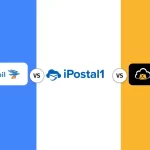Virtual mailboxes have emerged as a modern solution for managing postal mail digitally. They provide users with a physical mailing address where mail is received, scanned, and made accessible online. This service is particularly beneficial for individuals who travel frequently, businesses that operate remotely, and expatriates who need a reliable way to manage their mail from afar.
The popularity of virtual mailboxes has been growing due to several factors. Firstly, they offer unparalleled convenience, allowing users to access their mail from anywhere in the world. This is especially useful in today’s digital age, where mobility and remote work are increasingly common. Additionally, virtual mailboxes help users maintain privacy by providing an alternative address for receiving mail, which is particularly appealing for businesses and individuals concerned about personal information security.
Security is a crucial aspect of virtual mailbox services. Users entrust these services with sensitive information, making it imperative for providers to implement robust security measures. This includes secure handling of physical mail, data protection protocols for scanned documents, and stringent privacy policies to safeguard user information.
What is a Virtual Mailbox?
A virtual mailbox functions by providing users with a unique mailing address. When mail is sent to this address, the service provider receives it, scans the exterior, and uploads images to the user’s online account. Users can then decide whether to open, forward, or shred the mail. This process contrasts with traditional PO boxes, which require physical visits to retrieve mail and do not offer digital access or management capabilities.
Key features of virtual mailboxes include mail scanning, forwarding services, package handling, and secure shredding of unwanted documents. These services offer flexibility and control over mail management, making them a valuable tool for both personal and business use.
Read more about what a virtual mailbox is here.
Types of virtual mailbox services
- Forwarding Addresses: These services provide a permanent address for receiving mail, which can then be forwarded to any location worldwide.
- Third-Party Mail Centers: Independent companies that offer virtual mailbox services, often with additional features such as package receiving and scanning.
- Company Sorting Hubs: Large corporations may have their own mail sorting facilities to manage incoming mail for employees or clients, offering similar services to third-party providers but often with more tailored solutions.
Top Security Concerns with Virtual Mailboxes
Mail Handling and Privacy
One of the primary security concerns with virtual mailboxes is the handling of physical mail. Users must trust that their mail is being managed securely and that their privacy is respected throughout the process. This involves ensuring that only authorized personnel have access to the mail and that strict protocols are followed when opening, scanning, and forwarding mail. Providers must implement rigorous employee training and conduct background checks to prevent unauthorized access and ensure that mail is handled with the utmost care and confidentiality.
Digital Security and Data Protection
Digital security is another critical aspect of virtual mailbox services. Once mail is scanned and uploaded to a user’s online account, it becomes essential to protect this digital data from unauthorized access and cyber threats. Providers must use robust encryption methods to safeguard data during transmission and storage. Additionally, implementing multi-factor authentication and secure login procedures can help prevent unauthorized access to users’ accounts. Regular security audits and updates to software systems are also necessary to address vulnerabilities and ensure compliance with data protection regulations.
Physical Security of Mail Storage Facilities
The physical security of mail storage facilities is equally important in maintaining the integrity and confidentiality of users’ mail. Facilities must be equipped with security measures such as surveillance cameras, access control systems, and alarm systems to deter unauthorized entry and theft. Furthermore, mail should be stored in secure, locked areas accessible only to authorized personnel. Providers should also have contingency plans in place to protect mail from natural disasters or other unforeseen events that could compromise its security.
Debunking Common Myths about Virtual Mailbox Security
Virtual mailboxes are often misunderstood, leading to several myths about their security.
Myth 1: Virtual Mailboxes Are Not as Secure as Traditional PO Boxes
A prevalent myth is that virtual mailboxes lack the security of traditional PO boxes. In reality, virtual mailboxes offer enhanced security features that often surpass those of PO boxes. For instance, virtual mailbox providers implement robust digital security measures, including encryption and secure access protocols, to protect users’ information1. Additionally, the physical security measures at mail handling facilities, such as surveillance and access control, ensure that mail is protected from unauthorized access.
Myth 2: Anyone Can Access Your Mail
Another misconception is that virtual mailboxes allow anyone to access your mail. This is untrue, as virtual mailbox services are designed with strict access controls. Only authorized personnel can handle and process mail, and users have secure, password-protected access to their accounts. Providers often use multi-factor authentication to further safeguard account access, ensuring that only the account holder can view and manage their mail.
Myth 3: Digital Scans Are Vulnerable to Hacking
Some people worry that digital scans of their mail are susceptible to hacking. However, reputable virtual mailbox providers employ advanced cybersecurity measures to protect digital data. These include encryption during data transmission and storage, regular security audits, and software updates to address potential vulnerabilities. As a result, the risk of hacking is minimized, and users can trust that their digital mail is secure.
What Are the Cons of a Virtual Mailbox?
While virtual mailboxes offer numerous benefits, there are some potential drawbacks to consider.
Potential Security Risks. Despite the robust security measures in place, virtual mailboxes are not immune to security risks. Users must choose reputable providers with proven security track records to mitigate potential threats.
Limited Physical Access to Mail. Virtual mailboxes may limit users’ physical access to their mail, as mail is typically stored at a remote facility. This can be inconvenient for those who prefer to handle their mail in person.
Possible Delays in Mail Delivery. Mail processing and forwarding can sometimes lead to delays, especially if the provider’s facility is located far from the user’s location. Users should consider the provider’s location and processing times when selecting a service.
Is a Virtual Mailbox Legit?
Virtual mailboxes are recognized as legal services that provide users with a physical mailing address. Here’s what you want to look for in a provider:
Compliance with USPS Regulations
Virtual mailbox providers must comply with United States Postal Service (USPS) regulations. This includes registering with the USPS and adhering to federal laws that protect privacy and ensure proper mail handling.
Trustworthiness of Reputable Providers
Choosing a reputable provider is crucial to ensuring the legitimacy and security of a virtual mailbox service. Users should research providers, read reviews, and verify their compliance with legal and security standards to ensure they select a trustworthy service.
Do Banks Accept Virtual Mailboxes?
The acceptance of virtual mailboxes by banks can vary significantly depending on the institution’s policies and the type of account being opened. Understanding these nuances is crucial for individuals and businesses considering using a virtual mailbox for banking purposes.
Banks generally have stringent policies regarding the addresses they accept for account registration. These policies are often influenced by regulations such as the Know Your Customer (KYC) requirements, which aim to prevent fraud and money laundering. As a result, many banks prefer a physical address over a virtual one to ensure compliance with these regulations. However, some banks do accept virtual addresses, particularly if they are used as business addresses for companies like LLCs.
Situations Where Virtual Mailboxes May Be Accepted
Virtual mailboxes may be accepted in certain scenarios, especially for business accounts. For instance, banks might accept a virtual business address if it is a genuine street address and not just a PO box. This is particularly true for businesses that operate remotely or have a virtual office setup. Additionally, some banks may accept virtual addresses for digital nomads or expatriates, provided that the address meets specific criteria and is verifiable.
Alternatives for Banking Purposes
For individuals and businesses facing challenges in using a virtual mailbox for banking, there are several alternatives to consider:
- Use a Physical Address: If possible, provide a physical address, such as a home or office location, to satisfy the bank’s requirements. This is often the simplest solution if the bank does not accept virtual addresses.
- Hybrid Solutions: Some services offer hybrid solutions that combine a physical address with virtual mailbox features. These can provide the necessary documentation for banks while still offering the convenience of digital mail management.
- Consult with the Bank: Before opening an account, consult with the bank to understand their specific requirements for address verification. Some banks may offer flexibility or guidance on acceptable forms of address proof.
Legal Considerations and Compliance
USPS Regulations
Virtual mailbox services must comply with regulations set by the United States Postal Service (USPS). Providers are required to obtain authorization from the USPS to handle mail on behalf of their clients. This involves registering as a Commercial Mail Receiving Agency (CMRA) and adhering to specific guidelines to ensure secure and responsible mail management. Users must complete USPS Form 1583, which authorizes the virtual mailbox provider to receive mail on their behalf. This form requires identity verification and is necessary for legal compliance.
Privacy Laws and Data Protection
Privacy laws and data protection are critical considerations for virtual mailbox users. Providers must adhere to federal and state regulations that protect the privacy of users’ information. This includes implementing robust security measures such as encryption, secure access controls, and regular audits to safeguard data against unauthorized access and breaches. In regions like the European Union, providers must comply with the General Data Protection Regulation (GDPR), which sets stringent standards for data privacy and protection. Selecting a provider that prioritizes data security and complies with relevant privacy laws is crucial for ensuring the confidentiality of sensitive information.
Business Registration Requirements
For businesses, using a virtual mailbox involves additional legal considerations, particularly concerning business registration. Many states require businesses to have a registered agent with a physical address to receive legal documents and official correspondence. While virtual addresses can be used for business operations, they must comply with state-specific regulations regarding business registration and the role of registered agents. Virtual mailboxes offer the advantage of providing a professional business address without the need for a physical office, but it is essential to ensure that the service complies with all local and state requirements to avoid legal complications.
How does US Global Mail Handle Mail in a HIPAA Compliant Way?
HIPAA sets strict standards for the protection of Protected Health Information (PHI), requiring that any entity handling such data implement measures to prevent unauthorized access and ensure confidentiality. For US Global Mail, this means adhering to stringent protocols for both physical and digital mail handling to protect sensitive health information.
Encryption and Data Protection Measures
US Global Mail employs advanced encryption techniques to protect data at rest and in transit. This includes using 256-bit AES encryption, a standard that ensures PHI is securely stored and transmitted, preventing unauthorized access. Additionally, the service uses secure platforms like Google Cloud and AWS, known for their robust security features, to store and manage data securely.
Comprehensive Tracking and Accountability
A key component of US Global Mail’s HIPAA compliance is their meticulous tracking system. Each piece of mail is assigned a unique barcode upon receipt, allowing the company to monitor every interaction with the mail. This barcode system records detailed information about who handled the mail, including who touched it, who shipped it, who shredded it, and who forwarded it. This comprehensive tracking ensures accountability and transparency, providing a clear audit trail for every piece of mail processed.
High Volume, High Accuracy
Handling over 3 million pieces of mail annually, US Global Mail has honed its processes to achieve an impressive accuracy rate of 99.99%. This high level of precision means that lost mail is nearly unheard of, providing clients with the confidence that their critical business and personal documents are secure and reliably managed. This accuracy is particularly crucial for legal mail, which often requires timely responses and specific handling procedures.
Specialized Handling for Legal and Sensitive Mail
US Global Mail recognizes the importance of handling legal mail with care, adhering to specific time constraints and procedures to ensure compliance. When mail arrives without a box number or with mismatched names and addresses, it is flagged and quarantined. The company then reaches out to the box owner for verification, going the extra mile to prevent misdelivery and ensure that mail reaches its intended recipient.
HIPAA-Certified Handlers
For mail containing sensitive information, such as medical documents covered by HIPAA, US Global Mail employs HIPAA-certified handlers. These trained professionals are responsible for processing PHI, ensuring that it is managed in compliance with HIPAA regulations. This specialized handling guarantees that sensitive documents are only ever processed by individuals who understand and adhere to the strict confidentiality and security standards required by HIPAA.
ID Verification and Security Measures
To further enhance security, US Global Mail employs rigorous ID verification processes. When mail requires verification, the company ensures that IDs are checked and confirmed to belong to the intended recipient. This additional layer of security helps prevent unauthorized access and ensures that sensitive information is only accessible to those with the proper authorization.
Procedures to Ensure Confidentiality of Protected Health Information (PHI)
To maintain the confidentiality of PHI, US Global Mail follows strict procedures, including limiting access to authorized personnel only. Employees handling mail undergo thorough background checks and training to ensure compliance with privacy regulations. Furthermore, the service offers options for secure shredding and disposal of sensitive documents, ensuring that PHI is not inadvertently disclosed or mishandled.
Google Cloud and AWS for Data Storage
US Global Mail leverages the security infrastructure of industry leaders like Google Cloud and AWS to store and manage data. These platforms provide high levels of data protection, including multi-layered security protocols, to safeguard PHI from potential breaches. This partnership ensures that US Global Mail can offer a secure environment for managing sensitive health information, aligning with HIPAA’s stringent requirements.





